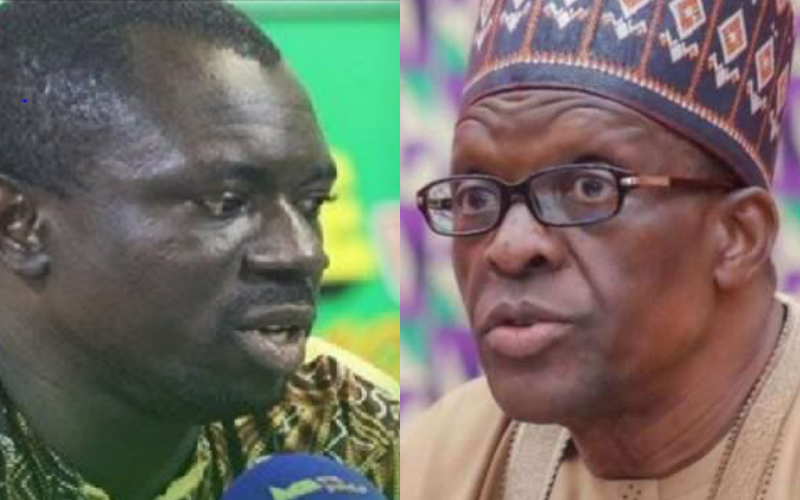Senior Researcher Prof. Smart Sarpong has expressed significant discontent regarding the recent actions of Speaker of Parliament Alban Bagbin amid a legal disagreement with the Supreme Court. The dispute arose after the Supreme Court dismissed Bagbin’s appeal aimed at reversing a ruling that declared four parliamentary seats vacant. Prof. Sarpong criticized the Speaker’s legal strategy, particularly the argument put forth by his legal team that the Supreme Court lacked jurisdiction and invoked constitutional immunity through Article 117. The Speaker’s initial response to the court involved returning documents served by the bailiffs, a move that sparked further scrutiny of his approach to the situation.
Despite the Speaker’s assertions, the Supreme Court ultimately ruled against his appeal, underscoring that the arguments presented by his team lacked merit. Chief Justice Kwasi Anin Yeboah conveyed the court’s decision, emphasizing that the legal foundation of Bagbin’s application did not hold up under scrutiny. Prof. Sarpong took to the airwaves on Peace FM’s Kokrokoo morning show to challenge the Speaker’s stance, arguing for a reconsideration of the privileges associated with his position. He called on Bagbin to reflect on the responsibilities that accompany such a role, particularly in relation to the principles of equality enshrined in Ghana’s governance structure.
During his broadcast, Prof. Sarpong posed a provocative question to the Speaker and the Members of Parliament, asking, “Which of the Members of Parliament, including senior Bagbin, is more Ghanaian than someone else?” This inquiry was intended to provoke reflection on the concept of national identity and citizenship. He emphasized that the position one holds in government does not grant an individual superiority over others in society. This call for humility and accountability was further echoed in his assertion that the privileges associated with the office of Speaker should be approached with caution.
Sarpong’s remarks centered around the foundational principle that all individuals, regardless of their social or governmental standing, should be treated equally. He underscored that the essence of democracy lies in the recognition of this equality, despite the hierarchies that exist within political structures. He appealed to the Speaker and his parliamentary colleagues to bear in mind that the power they wield comes with a unique responsibility to serve and represent the interests of all citizens equally, rather than to act with an assumption of superiority.
Additionally, Prof. Sarpong’s comments resonate with broader concerns regarding accountability within Ghana’s political leadership. His emphasis on human equality and dignity calls for a political culture that prioritizes service and representation over entitlement and privilege. By invoking a sense of shared humanity, Sarpong seeks to remind those in power that their roles are ultimately to facilitate the democratic engagement of all citizens, rather than to enforce a hierarchy that deems some individuals more valuable than others.
In conclusion, Prof. Sarpong’s critique of Speaker Bagbin serves as a reminder of the fundamental principles upon which democratic governance should be founded in Ghana. His call for a reassessment of power dynamics within Parliament highlights the importance of humility, equality, and accountability among political leaders. As the nation navigates the complexities of its legal and political systems, Sarpong’s voice underscores the need for a collective commitment to uphold democratic values that honor the dignity of every Ghanaian citizen.














